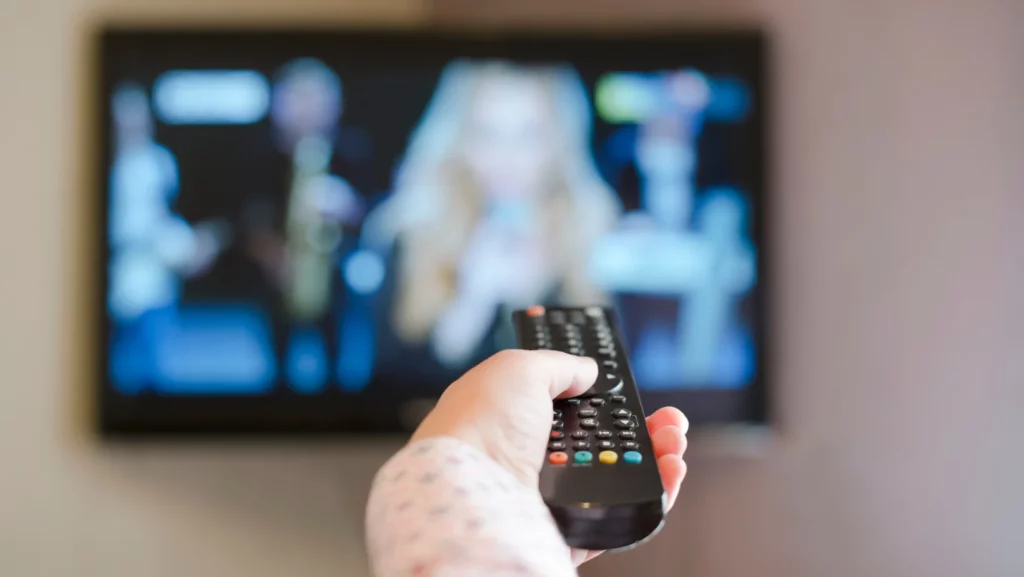Television has been a dominant force in our lives for decades, shaping our entertainment, our culture, and even our worldviews. From its early days of black-and-white broadcasts to the high-definition, on-demand streaming services of today, television has revolutionized the way we consume information and entertainment. In this digital age, where screens of all sizes are an integral part of our daily routines, it’s essential to explore the profound influence of television on our lives.
This journey takes us through a landscape of advantages and disadvantages, where the power of this medium becomes evident in both its ability to educate and enlighten, as well as its potential to manipulate and misinform. Join us as we navigate the complex world of television, examining its impact on society, individuals, and the broader media landscape.
Are you curious about the immense influence of television on our lives?
Dive into the world of television, where we unravel the captivating Advantages and Disadvantages that shape our society, culture, and individual perspectives. From its inception, television has been a powerful tool for communication and entertainment, connecting people from all walks of life and bringing the world to our screens.
Discover the profound impact of television, from its power to educate and entertain to its potential to shape our beliefs and behaviors. Let’s explore the positive and negative effects of this ubiquitous medium, and how it continues to evolve with our ever-changing technological landscape.
Join us on this eye-opening exploration of The Influence of Television.
Discovering What is Television and How It Works

Television has humble beginnings, with its first public demonstration in the late 1920s. Since then, it has evolved into a ubiquitous household item, dominating our living rooms and bedrooms.
At its core, television is a communication device that transmits visual and audio content to a receiver. This transmission can be either analog or digital and is usually broadcasted through radio waves or cables. With the advent of streaming services, television has also become accessible through the internet, making it a truly global medium.
The inner workings of television involve various components such as cameras, microphones, transmitters, and receivers. These components work together to capture and relay images and sound to our screens, creating an immersive viewing experience.
Did you know?
- Television shipments amounted to around 202 million units worldwide in 2022.
- In 2023 U.S. adults will spend an average of nearly three hours watching TV each day.
How Does Television Influence Society And Culture?

Television has undoubtedly played a significant role in shaping society and culture. From being a source of news and information to a platform for entertainment, television has impacted the way we perceive the world and interact with one another.
On one hand, television has brought us together, breaking down barriers and fostering a shared understanding of global issues. It has also been instrumental in bringing awareness to social and political issues, sparking important conversations, and driving change.
It can influence Society and Culture in the following ways:
Education and Knowledge
Television has been a valuable tool for education, bringing various subjects and concepts into our homes. It has also opened up opportunities for distance learning, making education accessible to a wider audience.
Cultural Exchange
Through television, we are exposed to different cultures, customs, and traditions from around the world. This exchange can promote tolerance and understanding, breaking down stereotypes and promoting diversity.
Consumerism and Advertising
Television has a substantial influence on consumer behavior, with advertisements shaping our wants and needs. The rise of product placement in television shows further blurs the lines between entertainment and marketing.
Social Values and Norms
Television can impact social values by reinforcing or challenging societal norms. It can also perpetuate harmful stereotypes and biases, particularly in its portrayal of marginalized communities.
While television has undoubtedly brought many positive changes to society and culture, it’s essential to acknowledge its potential for negative influence as well. Television has also been criticized for perpetuating stereotypes, promoting materialism, and normalizing violence. It’s essential to critically evaluate the content we consume on television and its potential effects on our beliefs and behaviors.
The Educational Power of Television
Television has proven to be a valuable educational tool, particularly for children. Educational programs such as Sesame Street and Blue’s Clues have been successful in teaching young children various concepts and skills, from literacy to problem-solving.
Furthermore, documentaries and non-fiction shows on topics ranging from history to science have expanded our collective knowledge and understanding of the world. With the rise of streaming services, educational content is becoming even more accessible, making learning a part of our everyday viewing experience.
However, it’s essential to note that not all content on television is suitable for education. With the rise of “edutainment,” where educational and entertaining elements are blended, it’s crucial to critically evaluate the accuracy and bias in these shows.
Entertainment at Your Fingertips: The Positive Side of TV
Television has also been a source of entertainment, bringing joy and laughter into our homes. From sitcoms to dramas, reality shows to game shows, television offers a wide range of entertainment options for people of all ages.
Let us discuss some of the Positive Effects of Television:
Stress Relief
Television provides a much-needed escape from our daily lives, allowing us to relax and unwind after a long day. It can also be a form of catharsis, helping us process and cope with emotions.
Fostering Creativity
With the rise of streaming services, television has become a platform for original and diverse content. This has led to an increase in opportunities for writers, actors, directors, and other creatives to showcase their talent.
Bringing Families Together
Television can be a unifying force for families, with shows that cater to different age groups and interests. It can also serve as a tool for bonding and starting conversations within the household.
While television has its drawbacks, it’s essential to acknowledge and appreciate its positive influence on our lives. With the ability to inspire, educate, and entertain, television continues to be a powerful medium that shapes our society and culture
Exploring The Negative Effects Of Television
As with any influential technology, there are always drawbacks and negative effects to consider. In the case of television, its popularity and accessibility have raised concerns about potential harm to individuals and society as a whole.
Let us discuss some of the Negative Effects of Television:
Sedentary Lifestyle
The sedentary nature of watching television has been linked to health issues such as obesity, heart disease, and diabetes. Spending long hours in front of the television can also lead to a lack of physical activity and outdoor exposure, particularly in children.
Violence and Aggression
The constant exposure to violence on television has been linked to an increase in aggressive behavior and desensitization towards violence. This is a particular concern for young viewers who may not understand the difference between reality and fiction.
Negative Body Image
Television often portrays unrealistic and idealized standards of beauty, leading to body image issues and self-esteem problems, particularly in young viewers. This is further perpetuated by the heavy use of photo editing and filters in advertisements and shows.
Individuals need to be mindful of their television viewing habits and actively seek out balance in their media consumption. Parents also play a crucial role in monitoring and guiding their children’s exposure to television, setting boundaries, and promoting critical thinking skills.
The Advantages and Disadvantages of Television

Television has brought about many positive changes to our society and culture, from education to entertainment. However, its widespread popularity and influence have also raised concerns about its potential negative effects on individuals and society.
Let us discuss the advantages and disadvantages of television in a more detailed list:
Advantages of Television:
An educational tool for children and adults alike
One of the most significant advantages of television is its potential as an educational tool. It allows people of all ages to gain knowledge and learn about a wide range of topics engagingly and interactively. These shows can help people stay informed and expand their knowledge on various subjects.
Source of entertainment and stress relief
Television is also an excellent source of entertainment and a way to unwind after a long day. With the vast array of channels and programs available, there is something for everyone’s taste. Whether it’s catching up on the latest news, watching a comedy or drama series, or tuning into a sports game, television offers endless options for entertainment.
A platform for diverse and original content
Television has also opened up doors for diverse and original content to reach a wider audience. With the rise of streaming services like Netflix, Hulu, and Amazon Prime, more independent filmmakers, writers, and producers have the opportunity to showcase their work. This allows for a greater variety of stories and perspectives to be shared with viewers.
Unifying force for families and communities
Television has the power to bring people together, both within families and communities. It provides a shared experience and can be a topic of discussion among friends, co-workers, and even strangers. From watching a beloved show or sporting event together to participating in live events like talent shows or game shows, television can create connections between people.
Shaping Pop Culture and Trends
Television has a significant influence on popular culture and trends. From fashion and beauty to music and language, television plays a crucial role in shaping what is considered “cool” or trendy. Shows like reality TV and talent competitions have also launched the careers of many celebrities who go on to become household names.
Access to information and news
Television is a vital source of information, particularly for those who may not have access to other forms of media. News channels provide up-to-date coverage of current events and offer different perspectives on global issues. This allows viewers to stay informed about what’s happening in the world without relying solely on biased sources.
Shapes Political Narratives
Television also has a significant impact on shaping political narratives and influencing public opinion. With 24-hour news channels and political debates, television plays a crucial role in disseminating information about political issues and candidates. It allows viewers to form their opinions and engage in discussions about important topics.
Shaping Public Opinion
Television has the power to shape public opinion by presenting information in a certain way and highlighting particular viewpoints. This can be both positive and negative, as it can help promote social change and raise awareness of important issues but also perpetuate harmful stereotypes and biases.
Disadvantages of Television:
Can perpetuate harmful stereotypes and biases
Television shows and advertisements are often guilty of propagating harmful stereotypes about different races, genders, sexual orientations, religions, etc. These stereotypes can reinforce biases and prejudices in society and perpetuate discriminatory attitudes towards marginalized groups.
Can promote violence and aggression
Many television shows contain violent content, which can desensitize viewers to real-life violence. Research has shown that exposure to violent media can increase aggressive behavior in children and adolescents.
This can lead to a sedentary lifestyle
Watching television for prolonged periods can contribute to a sedentary lifestyle, which is linked to various health problems such as obesity, heart disease, and diabetes. It also reduces the amount of physical activity one engages in, leading to a decrease in overall fitness and well-being.
Can negatively impact cognitive development
Young children who are exposed to excessive television may have delayed language acquisition, attention problems, and difficulty with social interactions. This is because television viewing does not provide the same mental stimulation as other activities like reading or playing.
Can create unrealistic expectations
Television often presents an idealized and unrealistic version of reality, leading viewers to have unrealistic expectations about life and relationships. This can lead to disappointment and dissatisfaction when these expectations are not met.
Can be addictive
Television can be highly engaging and captivating, making it difficult for some people to turn it off. This can lead to a dependence on television as a form of entertainment, resulting in neglect of other important activities and responsibilities.
Can be a source of misinformation and Media Manipulation
With the rise of online streaming services and social media, television has become a major source of news and information for many people. However, not all information presented on television is accurate or unbiased, and it can be easily manipulated for political or commercial purposes.
Blurs the Line Between Fact and Fantasy
Television often blurs the line between fact and fantasy, making it difficult for viewers to distinguish between what is real and what is fabricated. This can lead to confusion, misinformation, and even a distorted perception of reality. It also makes it easier for media outlets to manipulate public opinion by presenting fictional or exaggerated events as if they were true.
Overall, while television has its benefits, it is important to recognize and address its potential negative impacts on individuals and society as a whole. Responsible consumption and critical thinking when consuming television can help mitigate these disadvantages. Therefore, both producers and viewers need to be mindful of the content being created and consumed, to promote a more balanced representation of the world.
Additionally, promoting diverse voices and perspectives in television can help combat harmful stereotypes and biases, while also providing more varied and enriching content for viewers.
The Moral Responsibility of TV Networks and Producers
Due to the significant influence of television on society, it can be argued that TV networks and producers have a moral responsibility to carefully consider the content they produce and how it may impact viewers. This includes promoting diversity and inclusion, avoiding harmful stereotypes and biases, and providing accurate information.
Their Moral Responsibility also extends to the representation of different:
- Cultures
- Religions
- Lifestyles
It is crucial for television to accurately reflect the diversity of our world and avoid homogenizing or stereotyping certain groups. TV networks and producers should strive to present a balanced perspective on current events and political issues, avoiding sensationalism and media manipulation.
Furthermore, TV networks should also be held accountable for perpetuating unhealthy beauty standards or promoting excessive consumerism through advertisements. By taking into consideration the potential impacts of their content, TV networks and producers can play a crucial role in promoting a more positive and inclusive society.
A Glimpse into the Future: The Evolution of Television in the Digital Age

With the rise of digital streaming services and online content, television is undergoing a major evolution. Traditional TV networks are facing competition from online platforms, leading to more diverse and specialized content being produced.
This shift also allows for more global representation in television, as viewers can access shows and movies from around the world with just a few clicks. However, this also presents challenges in terms of censorship and regulation, as well as the potential for the spread of harmful content.
Moreover, advancements in technology have made it easier for individuals to create and share their content through platforms like YouTube. This has given rise to a new era of influencers and online celebrities, who often blur the boundaries between advertisement and personal content.
As television continues to evolve alongside technology, responsible and ethical practices must be upheld to ensure the well-being of both viewers and society as a whole. So, individuals need to be critical consumers of television and other media platforms, while also holding TV networks and producers accountable for their content.
Tips for Balancing TV Benefits and Risks
If you are concerned about your television consumption and its potential negative impacts, here are a few tips to help you find a balance:
- Limit screen time: Set a specific amount of time for television viewing each day and stick to it.
- Choose quality content: Be mindful of what you choose to watch and try to opt for more educational or informative programming.
- Engage in other activities: Instead of relying solely on TV for entertainment, try engaging in other activities such as reading, outdoor recreation, or creative hobbies.
- Practice critical thinking: Be aware of potential biases and misinformation presented on television and learn to question and analyze the content you consume.
- Promote diversity: Support diverse voices and perspectives in television by actively seeking out shows and movies that represent a variety of cultures, religions, and lifestyles.
By implementing these tips, you can enjoy the benefits of television while also being mindful of its potential risks. Remember to always be a critical consumer and advocate for responsible and ethical practices in the production and consumption of television. So, let’s work together to create a more balanced and inclusive media landscape.
Frequently Asked Questions About The Influence of Television: Advantages and Disadvantages
Q: How Television can influence our society?
A: Television can influence society by shaping public opinion, promoting certain lifestyles and values, and perpetuating stereotypes and biases. It also has the power to spread misinformation and shape individuals’ perceptions of reality.
Q: What are some potential negative impacts of television on individuals?
A: Potential negative impacts of television include decreased physical activity, disrupted sleep patterns, distorted body image, and desensitization to violence and other negative behaviors.
Q: Can television be beneficial for education?
A: Yes, television can be a valuable educational tool when used responsibly and purposefully. Educational shows can help promote learning and expand knowledge on various topics.
Final Thoughts
Television is a powerful and pervasive force in our lives, offering a myriad of advantages and disadvantages that shape our society, our minds, and our daily routines. It has revolutionized the way we learn, entertain ourselves, and connect with the world. From educational programs that broaden our horizons to riveting dramas that captivate our imaginations, television has enriched our lives in countless ways. As we navigate this complex landscape of television’s influence, it’s essential to strike a balance.
Ultimately, our relationship with television is a reflection of our society’s values and priorities. By harnessing its advantages while being aware of its pitfalls, we can make informed choices and ensure that television remains a powerful tool for education, entertainment, and enlightenment.

